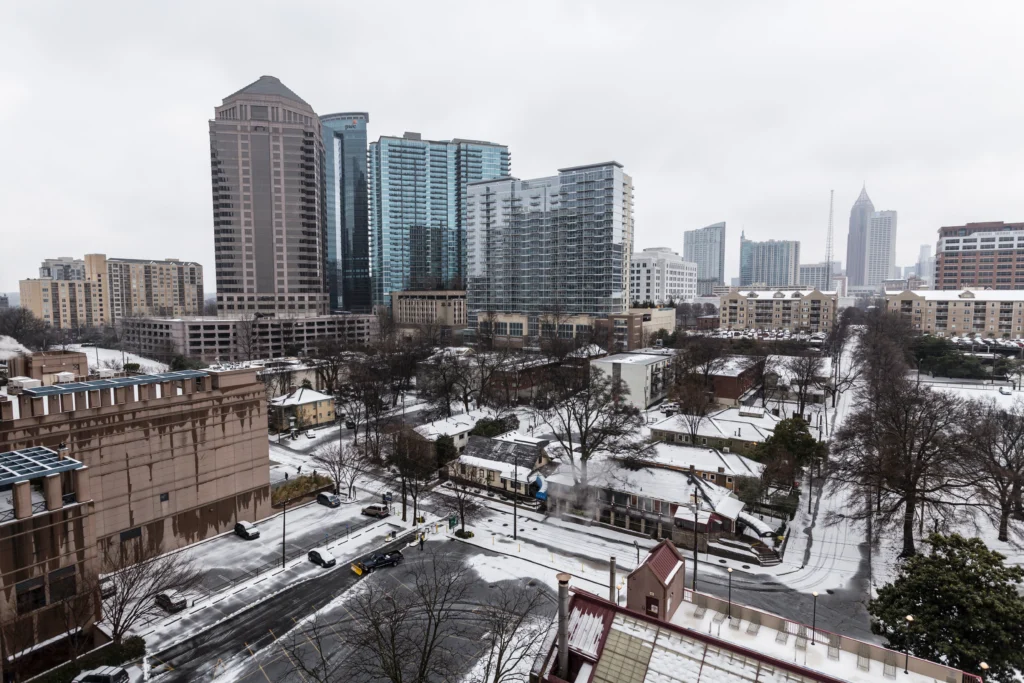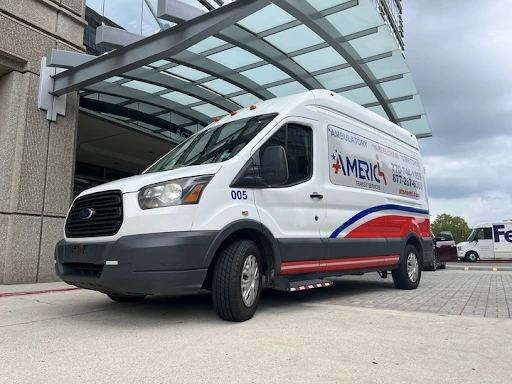Reflecting on Atlanta’s Snowpocalypse a Decade Later: A Look Back at the Unforgettable Winter of 2014

Ten years ago, the city of Atlanta experienced an extraordinary event that would go down in history as the “Snowpocalypse” or “Snowmageddon.” In February 2014, a severe winter storm swept through the southeastern United States, catching Atlanta off guard and leaving an indelible mark on the city. As we reflect on the events that transpired a decade ago, it’s worth revisiting the chaos, challenges, and camaraderie that emerged during those tumultuous days.
“Snowpocalypse” or “Snowmageddon” are informal terms used to describe severe and extreme winter weather events characterized by heavy and prolonged snowfall, often leading to significant disruptions in transportation, daily life, and infrastructure.
“Snowpocalypse” implies an unusually intense and disruptive snowstorm that goes beyond the typical winter weather. It often involves heavy snowfall, icy conditions, and widespread impacts on communities, including transportation shutdowns and power outages.
The Build-Up:
In the days leading up to the winter storm, meteorologists warned of an impending weather system that had the potential to bring heavy snowfall and icy conditions to the region. However, Atlanta, not accustomed to such extreme winter weather, continued business as usual.
Day 1: The Storm Hits:
As the storm made its way across the southeastern states, Atlanta woke up to a city blanketed in snow on that fateful morning. Commuters found themselves in a race against time to get home as the roads quickly became treacherous. With insufficient preparation and a limited fleet of snowplows, the city’s infrastructure struggled to cope with the sudden onslaught of winter weather.
Gridlock and Stranded Motorists:
The rapid accumulation of snow and ice led to unprecedented traffic gridlock. Thousands of motorists found themselves stranded on highways and roads, unable to navigate the slippery conditions. Commutes that would typically take minutes turned into hours, and some individuals abandoned their vehicles altogether, seeking refuge wherever they could.
Community Resilience:
Despite the challenges, the Snowpocalypse brought out the best in Atlanta’s residents. Acts of kindness were witnessed throughout the city, as strangers helped each other, sharing supplies and offering shelter to those in need. Community centers, churches, and businesses opened their doors to provide warmth and comfort to those stranded by the storm.
The Aftermath:
In the days following the storm, Atlanta began the process of recovery. The city assessed the response to the Snowpocalypse and implemented changes to better prepare for future winter weather events. The event served as a wake-up call, prompting improvements in snow removal infrastructure, emergency response protocols, and public communication strategies.
Legacy and Lessons:
Looking back, the Snowpocalypse of 2014 remains a significant chapter in Atlanta’s history. The city learned valuable lessons about the importance of preparedness for extreme weather events, even in regions not traditionally prone to heavy snowfall. The event highlighted the resilience of the community and the importance of coming together in times of crisis.
A decade after Atlanta’s Snowpocalypse, the memories of those snowy days continue to resonate. The city has since made strides in enhancing its winter weather preparedness, but the events of 2014 remain etched in the collective memory of residents. As we reflect on that challenging period, let it serve as a reminder of the strength and unity that can emerge in the face of unexpected adversity.
What has changed since Snowpocalypse 2014?
Since the Snowmageddon or Snowpocalypse events in 2014, Atlanta and other areas affected by the severe winter storm have implemented several changes and improvements to enhance their preparedness for extreme winter weather. Some notable changes include:
- Enhanced Snow Removal Equipment and Infrastructure:
- Cities like Atlanta have invested in additional snowplows, salt spreaders, and other snow removal equipment to quickly respond to snow and ice on roads.
- Improvements in infrastructure aim to make roads more resistant to icy conditions and facilitate quicker snow removal.
- Improved Communication and Coordination:
- Authorities have focused on enhancing communication strategies to keep the public informed about weather forecasts, road conditions, and emergency measures.
- Better coordination between government agencies, meteorologists, and emergency services has been established to ensure a more effective response.
- Emergency Response Protocols:
- Emergency response protocols have been refined to address the specific challenges posed by severe winter weather. This includes plans for evacuations, shelters, and assistance for stranded motorists.
- Collaboration between government agencies, law enforcement, and other organizations has been strengthened to ensure a more coordinated response during extreme weather events.
- Public Awareness and Education:
- Efforts have been made to increase public awareness about winter weather preparedness. This includes educating residents about the importance of staying informed, having emergency kits, and understanding how to navigate safely in icy conditions.
- Investments in Meteorological Technology:
- Advances in meteorological technology have allowed for more accurate weather predictions. Improved forecasting helps cities prepare for extreme weather events well in advance, allowing them to mobilize resources more effectively.
- Community Engagement and Volunteer Programs:
- Many communities have established volunteer programs and initiatives to encourage residents to assist each other during extreme weather events. This fosters a sense of community resilience and ensures that vulnerable populations receive necessary support.
- Strategic Planning and Preparedness Exercises:
- Cities and emergency management agencies conduct regular drills and exercises to test their preparedness for various disaster scenarios, including severe winter weather. These exercises help identify areas for improvement and refine response strategies.
- Investments in Research and Development:
- Ongoing research into climate patterns and the potential impact of climate change on weather events has informed preparedness strategies. Cities are adapting their plans to address the evolving challenges posed by changing weather patterns.
Some of the effects of Snowmageddon 2014 in Atlanta include:
Traffic Gridlock
Stranded Vehicles
School and Business Closures
Power Outages
Air Travel Disruptions
Community Response
Criticism of Emergency Response
Reasons why outdoor activities are good for seniors
While it’s challenging to predict every aspect of extreme weather events, the changes implemented since the Snowpocalypse of 2014 demonstrate a commitment to learning from past experiences and improving resilience to better protect communities during severe winter weather.

Arrive with Ease: Americ Transit Services Specialized Transportation
Are you or your loved ones in need of reliable and stress-free transportation to medical appointments? Look no further than Americ Transit Services! Our commitment is to provide special rides tailored to your unique medical needs, ensuring you reach your appointments safely and on time. At Americ Transit Services, we understand the importance of dependable transportation when it comes to healthcare, and that’s why we offer a specialized service that goes beyond just getting you from point A to point B.
Our team of drivers is not only reliable but also highly trained to handle the specific requirements of non-emergency medical transportation. We prioritize your comfort and well-being, providing a level of care that you can trust. Whether you require assistance getting in and out of the vehicle or need a comfortable and accommodating ride, our drivers are dedicated to making your journey to medical appointments as smooth and stress-free as possible.
What sets us apart is our unwavering commitment to your safety. Our careful drivers prioritize defensive driving practices, ensuring a secure and comfortable ride every time. We understand the unique challenges that individuals facing medical conditions may encounter, and our drivers are equipped with the compassion and skills needed to address those challenges with the utmost care.
Choosing Americ Transit Services means choosing a transportation partner that values your health and well-being. Don’t let transportation be a source of stress on your journey to better health. Experience the difference between our special rides to medical appointments – reliable, caring, and tailored just for you. Book a ride today or call (770) 744-1959 or (877) 287-6368 for your specialized non-emergency medical transportation with Americ Transit Services and discover a transportation service that puts your health and safety first. Your well-being is our top priority, and we look forward to providing you with the exceptional service you deserve on every ride.
Recent Comments